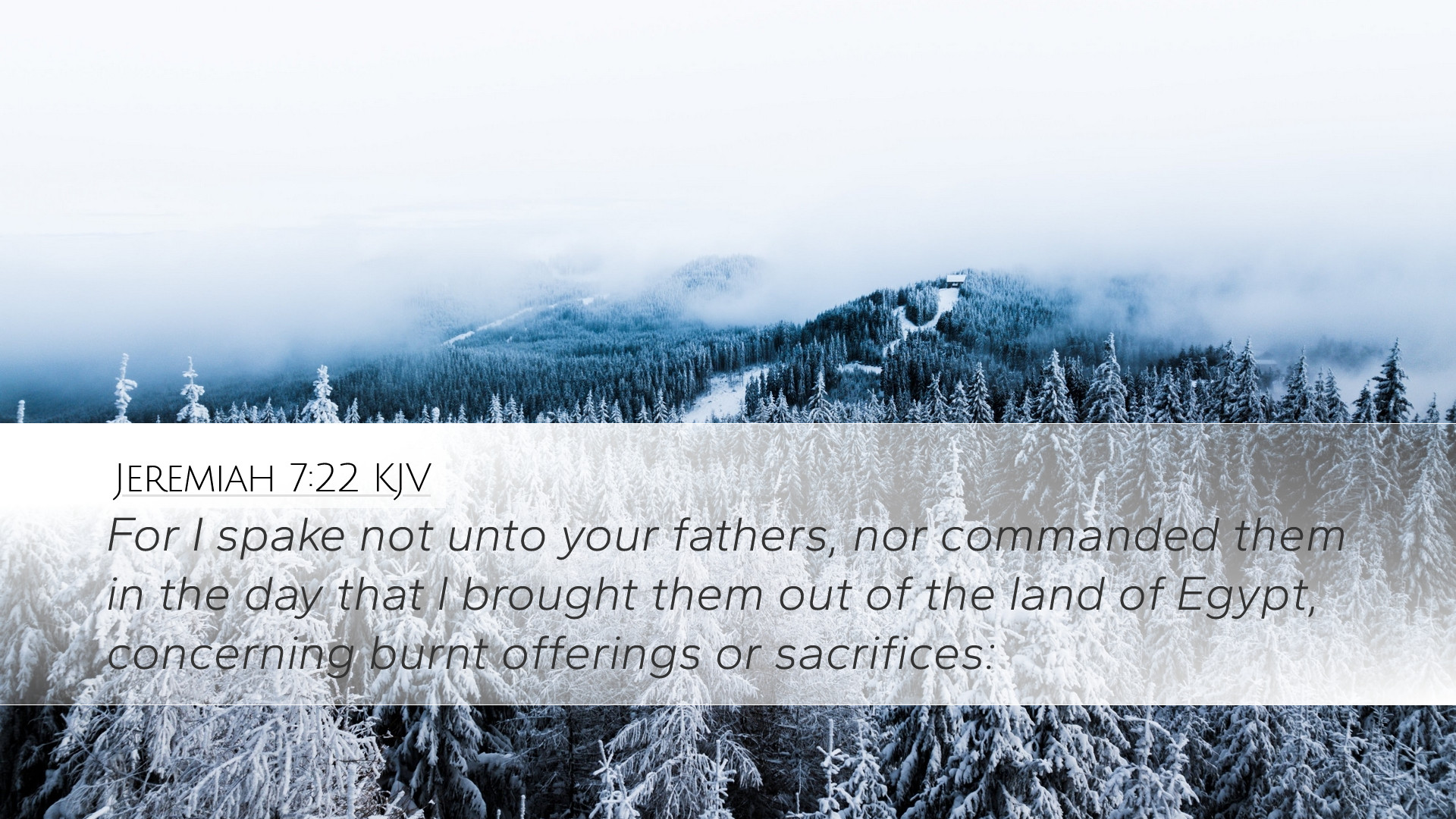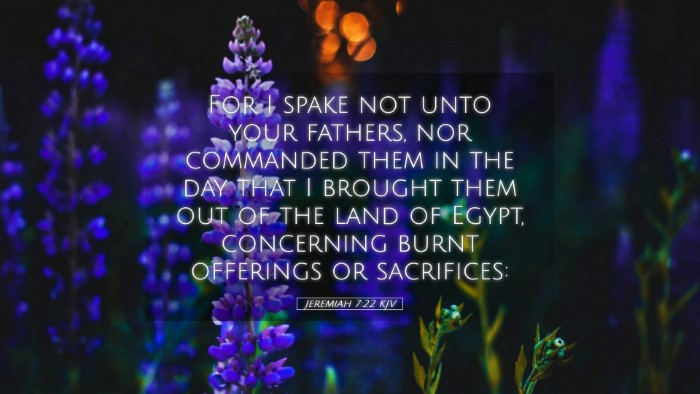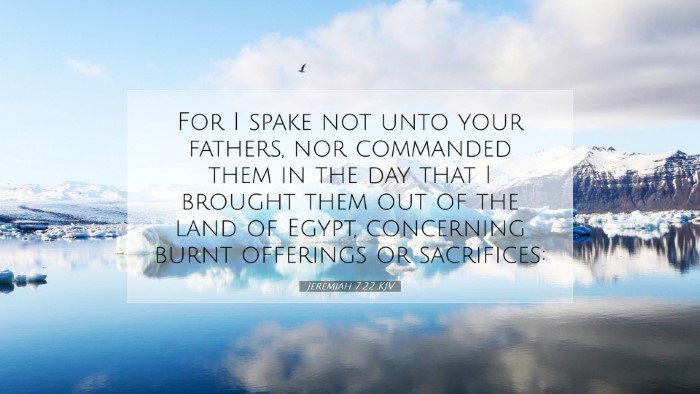Bible Commentary on Jeremiah 7:22
Verse: "For I spake not unto your fathers, nor commanded them in the day that I brought them out of the land of Egypt, concerning burnt offerings or sacrifices." (Jeremiah 7:22)
Introduction
This verse is a crucial piece of Jeremiah’s prophetic message to the people of Judah, articulating God’s true intentions concerning worship and sacrifice. The context here is vital; it reflects a time of spiritual decline and religious hypocrisy among the Israelites. Jeremiah is highlighting God’s original covenant promises and the misunderstanding of the role of sacrifices in their tradition.
Exegetical Insights
In understanding this verse, we draw from the writings of various commentators, each contributing unique insights into the text.
Matthew Henry's Commentary
Matthew Henry emphasizes that God did not initially command the ritualistic observance of burnt offerings and sacrifices upon bringing the people out of Egypt. His focus was on establishing a covenant relationship rather than merely instituting ceremonial laws.
According to Henry, this illustrates that God desires obedience from the heart more than external compliance through rituals. He argues that the Israelites often misinterpreted sacrifices as substitutes for genuine faith and moral conduct. They believed that by merely performing rituals, they could appease God’s judgment, while neglecting the fundamental principles of justice, mercy, and faithfulness.
Albert Barnes' Commentary
Albert Barnes further expands on the idea that while the sacrificial system was integral to Israelite worship, it was never intended to be the ultimate focus. He states, "In the early days, the emphasis was on moral and ethical living." Barnes articulates that God’s primary expectation was for the Israelites to heed His voice and walk in His ways rather than rely solely on ritual sacrifices as a means of establishing righteousness.
He also points out that sacrifices can hold a misleading significance when detached from heartfelt faith and obedience. The people had turned their worship into a mere formality, neglecting the core values of love and loyalty to God and one another.
Adam Clarke's Commentary
In his commentary, Adam Clarke underscores the importance of understanding God’s intention in the covenant with Israel. Clarke suggests that the lack of a command for burnt offerings upon their exodus implies that offerings were not an intrinsic aspect of their relationship with God at the outset but were introduced later as part of the law.
Clarke also delves into the historical context, articulating how the Israelites’ divergence from true worship led them to misconstrue the salvific nature of their relationship with God. He argues that this verse signifies a warning against placing too much emphasis on ritual without a foundational commitment to righteousness and justice.
Theological Reflections
This verse transcends its historical context and offers profound theological implications relevant for contemporary worship practices. It serves as a reminder that God values the condition of the heart over outward observance. The following points highlight key theological reflections for pastors and theologians:
- The Primacy of Obedience: True worship manifests through obedience to God's commands, which involves a holistic return to righteousness, compassion, and justice.
- The Pitfalls of Ritualism: Reliance on religious rituals can lead to spiritual apathy, causing believers to think they are in right standing with God without cultivating a genuine relationship with Him.
- God's Desire for Relationship: God’s ultimate desire is for His people to engage in a heartfelt relationship with Him, wherein worship flows from love and commitment rather than mere obligation.
Practical Application
For congregations and individual believers, Jeremiah 7:22 invites an introspection of their worship practices. The emphasis is on fostering authenticity in faith rather than habitual performances of religious duties. Below are some practical applications:
- Examine Motives: Believers should regularly evaluate the motivations behind their worship. Are they fulfilling a duty, or are they genuinely seeking to connect with God?
- Pursue Justice and Mercy: Engage actively in social justice and acts of mercy as expressions of worship that reflect God's heart for the marginalized and oppressed.
- Engage in Heartfelt Worship: Create a community culture that prioritizes experiences of genuine worship, focusing on heartfelt expressions of faith over mere tradition.
Conclusion
Jeremiah 7:22 serves as a pivotal reminder of God’s intentions when He established His covenant with Israel. The insights gleaned from commentators like Matthew Henry, Albert Barnes, and Adam Clarke illuminate the danger of conflating ritualistic observance with spiritual authenticity. As we reflect upon this scripture, may we strive to embody the heart of true worship that God desires—one marked by obedience, compassion, and a genuine connection with Him.


